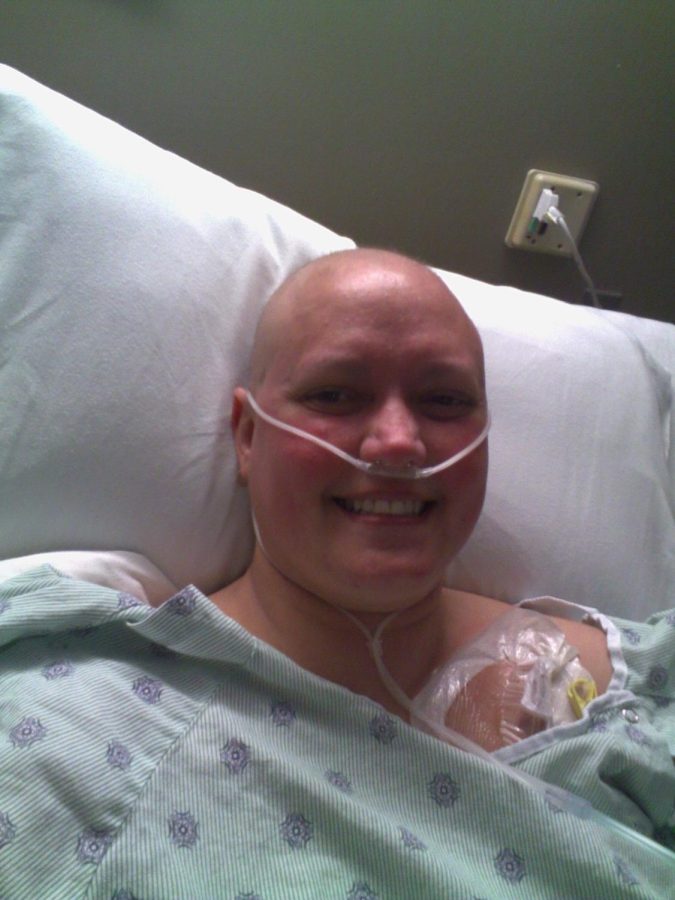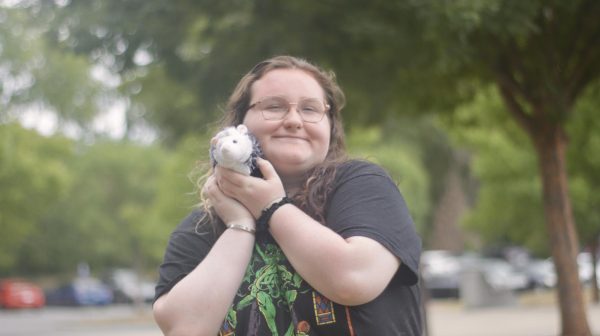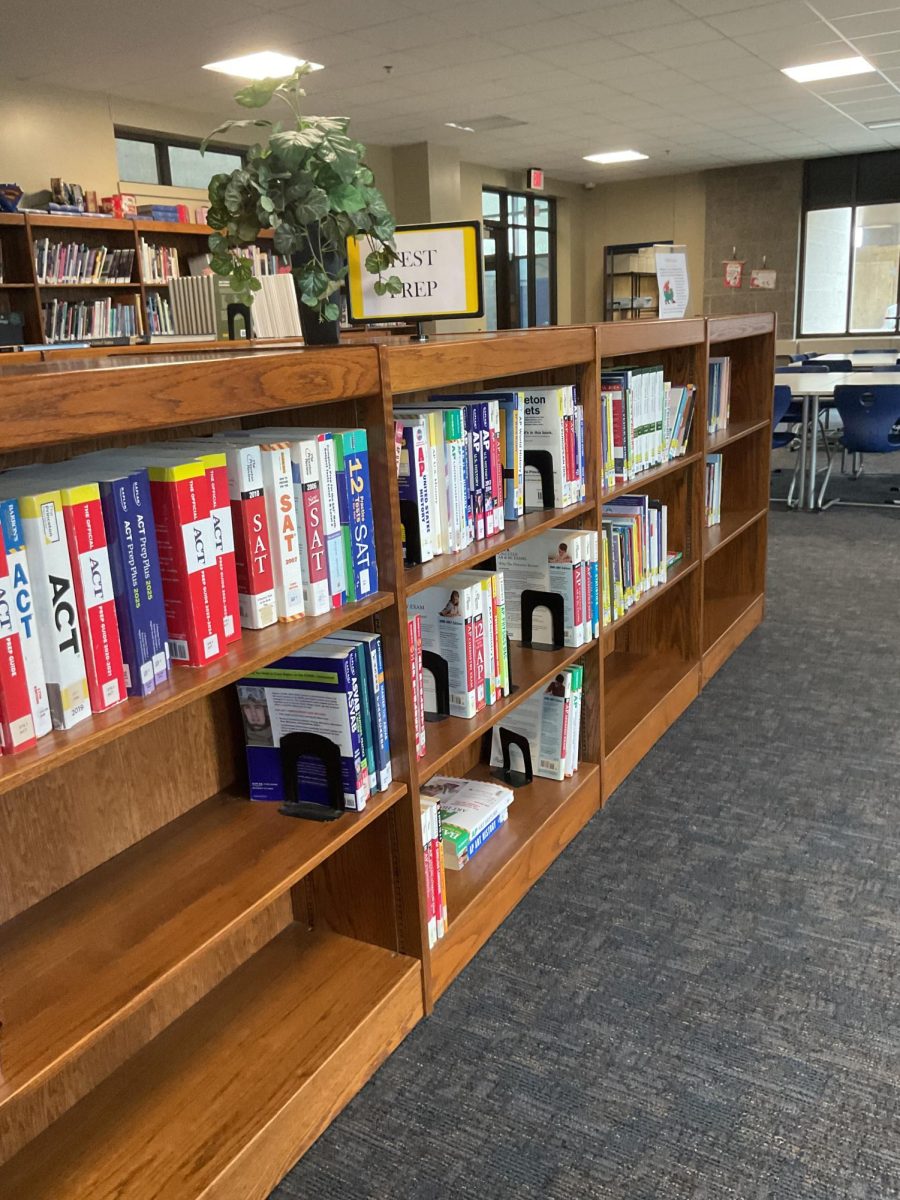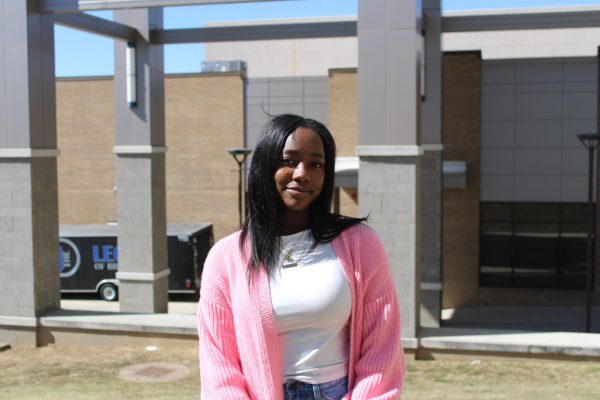Cancer Forms Community
Amanda Black, the school’s virtual facilitator, shares about her fight against cancer during the early years of her teaching, and how the community stepped up.
Amanda Black, the school facilitator, taking a selfie after doing treatment. She shaved her head beforehand, which was the last time she has ever cut her hair.
December 15, 2022
A year into working as a facilitator at Bryant, Amanda Black was diagnosed with 1A invasive ductal carcinoma—a form of breast cancer.
Black has been working as the facilitator since 2015, helping students with their Virtual Arkansas courses.
“When I first found out I was actually in a classroom with students,” Black said. “A couple of them cried, and I did have to say, you know, ‘I’m the one fixing to go through all this and I’m not crying, let’s not do that.’”
What led to Black’s diagnosis was finding a small bump under her skin.
“I would tell a few people about it and they would be like, ‘Oh my goodness, you need to get that looked at,’” Black said. “Within two weeks of deciding I needed to be seen, I was told I had cancer. It was life altering.”
After her diagnosis, Black told her oncologist she wanted to wait to start chemotherapy until the following summer, so that it wouldn’t interfere with the school year.
“I was really excited to see my seniors finish and graduate,” she said. “I didn’t want anything to change for them, and I was about to go through a lot of changes and may be really sick.”
When Black told her husband about her decision to wait until the summer, they had arguments on if she should really wait.
“We fought about that,” she said. “My husband struggled because I was diagnosed in April of 2016, he had just lost his dad in November of 2015, to lung cancer. Ultimately it came down to ‘I am my own medical power of attorney, and I get the say so.’”
During her second year of facilitating and first year of her treatment, Black was out of school for a total of three months. During the first eight weeks she was out, the school came together to support her family.
“Pounds of food were delivered to my house over the course of eight weeks,” she said. “I don’t remember much while I was in the hospital, a lot of that was just pain management, but I remember it being at home. Teachers coming in, trays and just big tins full of food.”
During her third year of teaching, when she had to undergo her second big surgery, people stepped right back up to help, including those at Virtual Arkansas.
“It’s huge to be rallied around like that,” she said. “I know a lot of people get upset about teacher pay, but that’s one thing that I can say, to me, is better than getting the paycheck from somewhere else. It’s one of the reasons why I value this place; they reach out.”
Black elected to do aggressive treatment, and in doing so the chances of her cancer coming back went from 50% to 1%, but it came with side effects, like an inner-ear issue and lymphedema in her right arm.
“Sometimes I’m really angry that I did that, removing as much tissue and body parts as I could,” she said. “It was to save my life, so it’s like, I know I did what’s right, but it’s aggravating that I had to do that to live.”
When Black was struggling with her cancer mentally, she sought to hide her emotions from friends and family.
“My husband only saw me cry once,” she said. “That day was really bad. That was the day they thought the cancer had spread and had come into my liver, and I want to say it was the same visit they found spots in my lungs showing up. That was devastating. My hair was just coming back. I was thinking I was done, and to think I was going to have to do more and even harder. I just broke, said ‘I can’t do this anymore.’’
Black tries not to hide her emotions anymore, and focuses on joy instead of pain.
“When you cry, man, your whole body is exhausted,” she said. “I mean, you can laugh until you’re exhausted, but laughing, even though you’re exhausted, you feel better. Whereas when you cry and you’re exhausted, you’re just ready for a nap. Like, you just, you’re done. And I’m not done. I’m 43, I’m not done.”





